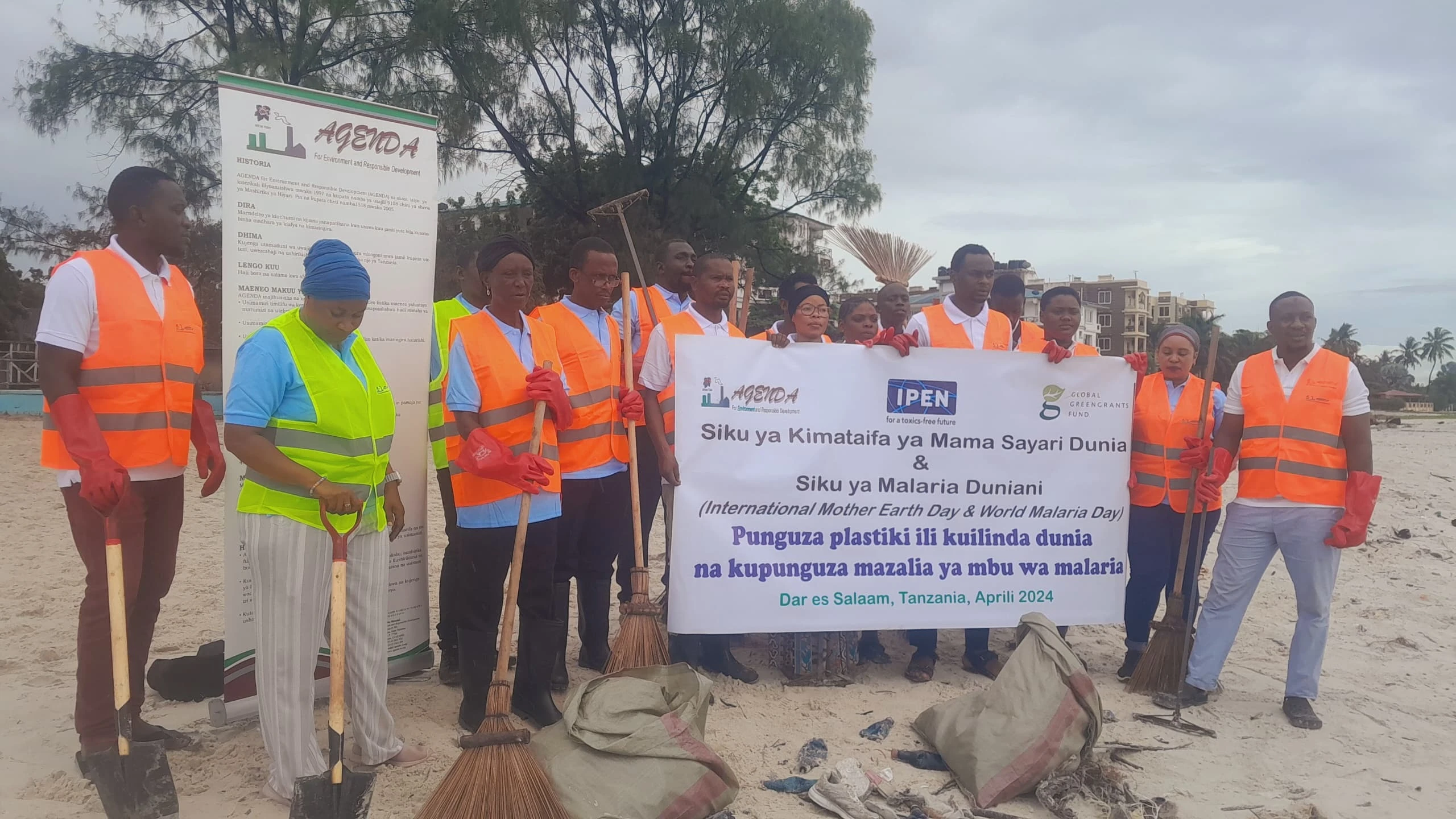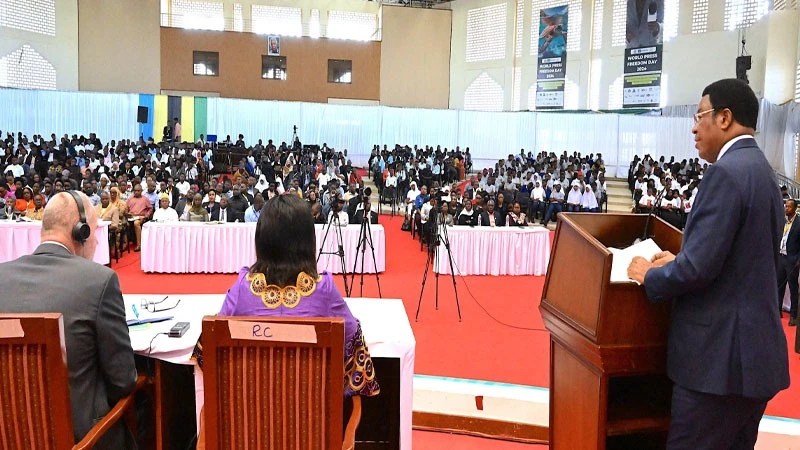Earth Day: Environmentalists want end of single-use plastics

ENVIRONMENT stakeholders have underscored the importance of collective efforts to eradicate the use of single-use plastics and promote reusable ones to fight pollution.
According to the stakeholders, investing in efforts to eliminate single-use plastics will greatly help protect the earth from plastic pollution which is currently on the increase.
Speaking in Dar es Salaam yesterday, Dora Swai, executive secretary of the Agenda for Environment and Responsible Development (AGENDA) said that plastic pollution produces massive negative effects in the country, something which needs coordinated efforts to curb.
The organisation in collaboration with various stakeholders engaged in a beach cleaning exercise as part of commemoration of the Earth Day as well as World Malaria Day.
Under this year’s theme ‘Planet vs Plastics’, Earth Day calls on people to effect changes in their daily lives to reduce the heavy burden of plastic pollution on the environment and human health.
“It is high time everyone fulfilled their responsibility to tackle the plastic problem that blights our oceans. Plastic pollution surfs onto our beaches, destroying marine species and the environment in general,” she said.
According to the UN Environment Programme (UNEP) humans produce 400 million tonnes of plastic waste each year.
This pollution takes up space in landfills, pollutes the oceans and because of its durability, can stay in our environment for centuries.
She said marine plastics threaten ocean health, human health, food safety and coastal tourism as well as contributing to climate change.
This year’s World Malaria Day theme “Ready to beat malaria” underscores the collective energy and commitment of the global community in uniting around the common goal of a world free of malaria.
Silvani Mng’anya, principal programme officer at AGENDA urged investors, entrepreneurs and communities living along coasts in the country to create a sustainable timetable of cleaning beach areas.
He said most people living in big cities have higher demand for and use plastic materials than those in rural areas, adding that’s why urban dwellings are the most polluted.
“Climate change is triggered by increasing human activities that disrupt biodiversity such as deforestation, land use change, intensified agriculture and livestock production or the growing illegal wildlife trade which accelerate the speed of destruction of the planet; so, we need to invest more efforts to protect our environment and health from various pollutants,” he said.
Hafsawat Komboza, a Dar es Salaam resident and environment stakeholder commended the organisation for organizing and conducting beach cleaning exercise at Msasani area to promote clean and healthy environment.
“This cleaning activity marks our contribution to demonstrating and sensitizing coastal communities and marine resources beneficiaries to be part of the solution because by protecting the oceans and shorelines we save lives and livelihoods,” she said.
Top Headlines
© 2024 IPPMEDIA.COM. ALL RIGHTS RESERVED




















